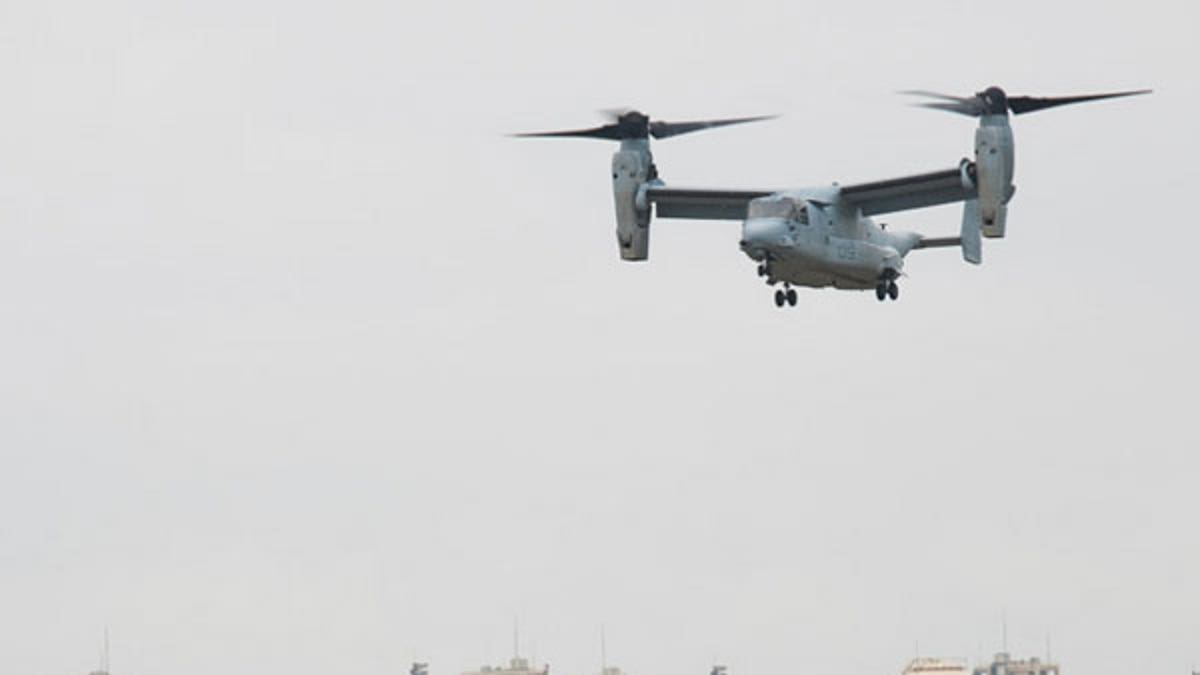
(Military.com)
Some residents and municipalities near the Yokota Air Base are upset the U.S. military plans to deploy Osprey tilt-rotor aircraft to the facility in western Tokyo.
Kiyoharu Horiuchi, a 60-year-old former printing company worker who lives a 10-minute walk from the air base, said Wednesday he does not welcome the plan.
"Considering all the negative aspects such as the Osprey's loud noise and its high risk of accident . . . I think nobody wants it to come near their home," he said.
"I believe some people are even thinking about moving out of the city" of Fussa, where the base is located, he added.
A number of local authorities and residents said the government's announcement on Tuesday was abrupt, considering the degree of public concern over the safety record of the aircraft.
The U.S. Air Force said it will base three CV-22 Ospreys at Yokota Air Base starting in the latter half of 2017, the first such deployment of the model to mainland Japan. Another seven will arrive in 2021.
A 30-something mother with a baby said she worries about the noise from low-flying Ospreys.
"Living in a one-story house near the air base, I constantly hear very loud noise from airplanes from very early in the morning, like 3 a.m.," she said. "Besides, I don't want to see the Osprey cause accidents."
The U.S. Marine Corps currently operates MV-22 Ospreys, a different model, from the Futenma Air Base in Okinawa.
Compared with the MV-22, the CV-22 is suited to low-altitude flight and is therefore exposed to a greater range of risks. Its accident rate is nearly seven times that of the model used in Okinawa, according to the Defense Ministry.
Related Video
Five cities including Fussa and a town adjacent to the air base issued a joint statement on Tuesday protesting the planned deployment.
"It is highly regrettable that the announcement of the plan was made with no advance notice despite our repeated request not to deploy the aircraft without full explanations to municipalities and local residents," it said.
Chief Cabinet Secretary Yoshihide Suga defended the move on Tuesday, saying it is intended to "help stabilize the Asia-Pacific region."
In a statement, the Pentagon said the aircraft would "provide increased capability for U.S. Special Operations forces to respond quickly to crises and contingencies" in Japan and the region.
However, Fussa Mayor Ikuo Kato told reporters on Tuesday the central government had said earlier there were no plans to deploy Ospreys to Yokota. He added that it would be difficult to accept the plan unless residents' concerns are allayed.
Kato said that when Fussa agreed to allow the Air Defense Command, which is the Air Self-Defense Force's nerve center, to relocate to Yokota, the Defense Ministry pledged that it would not expand the base's functions. He said the latest move flies in the face of that promise.
Meanwhile, Tokyo Gov. Yoichi Masuzoe told a press conference on Tuesday that as the leader of the metropolis, he has a responsibility for the lives of all Tokyo residents.
"There should be no cases of parts of CV-22 Ospreys falling off during flights or the aircraft crashing because of inadequate maintenance work," he said.

